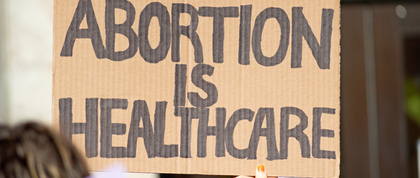
The Supreme Court's erasure of the constitutional right to access abortion by overturning Roe v. Wade has brought unprecedented challenges and uncertainties. Many people now struggle to answer even basic questions such as: Is abortion legal in my state? Can I still access birth control pills? Can I safely talk about the possibility of abortion or concern about miscarriage with my doctor or with my family? Should I stop tracking my period on an app?
Reproductive health is far from the only field being disrupted by the Supreme Court’s decision. The Turnaway study, the largest study to examine women’s experiences with abortion and unwanted pregnancy in the U.S., has found that people who were denied abortion experienced negative physical and mental health consequences, and negative developmental outcomes among their children. They also suffered increases in poverty, debt, and evictions.
That‘s not all. Delayed access to emergency care among pregnant people — an increasing phenomenon due to hesitancy on the part of both doctors and patients — may exacerbate the already-high delivery complication and maternal mortality rates. Many individuals with cancer, arthritis and ulcers are having challenges accessing critical medication due to confusion around the legality of drugs that can cause miscarriage as a side effect.
Additionally, medical students may not be able to receive comprehensive OB/GYN training critical to saving people’s lives. Doctor shortages may get worse in states with anti-abortion laws, which already tend to be disproportionately affected by such shortages. Trans and gender non-conforming individuals may have a harder time seeking gender-affirming treatment, as the closing of reproductive health clinics around the country may deprive them of already-rare access to such services.
These are complex, multi-disciplinary issues that affect the overall health system and beyond. Navigating the post-Roe world requires not only legal knowledge and advocacy but also public health education, research, workforce training and community outreach, as well as policy and programmatic interventions. In other words, these are public health issues that demand the attention of all of us.
Despite the political controversy, access to abortion is fundamentally about protecting human rights and promoting public health. The need for leadership by public health professionals on this issue has never been more urgent. Our role is to actively engage with communities, combat disinformation and come up with innovative solutions to address the ever-expanding consequences of this public health crisis. Most importantly, we must speak up and take action to protect access to abortion.